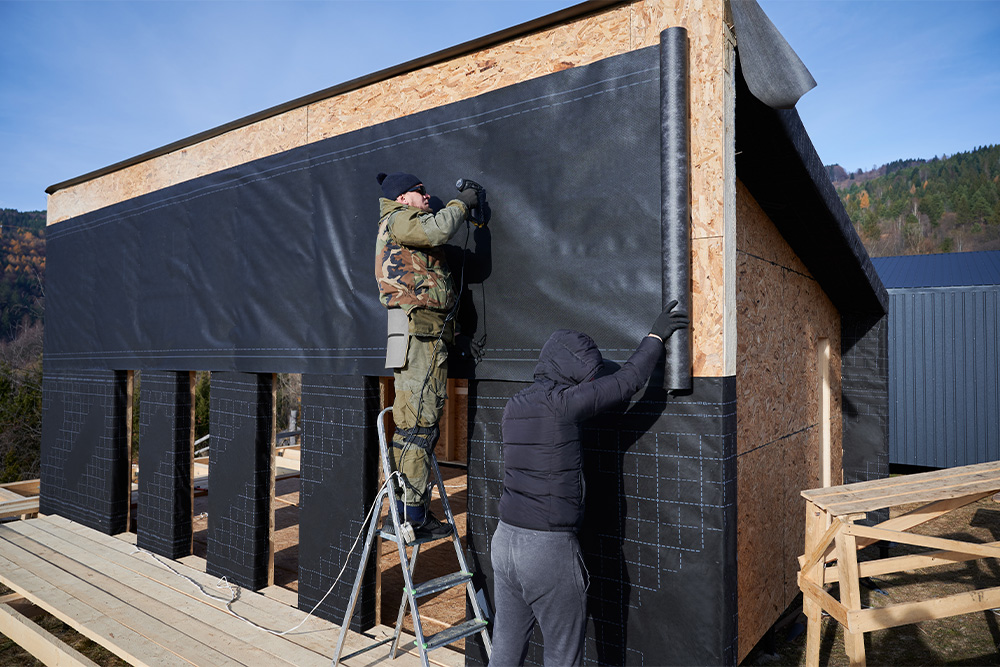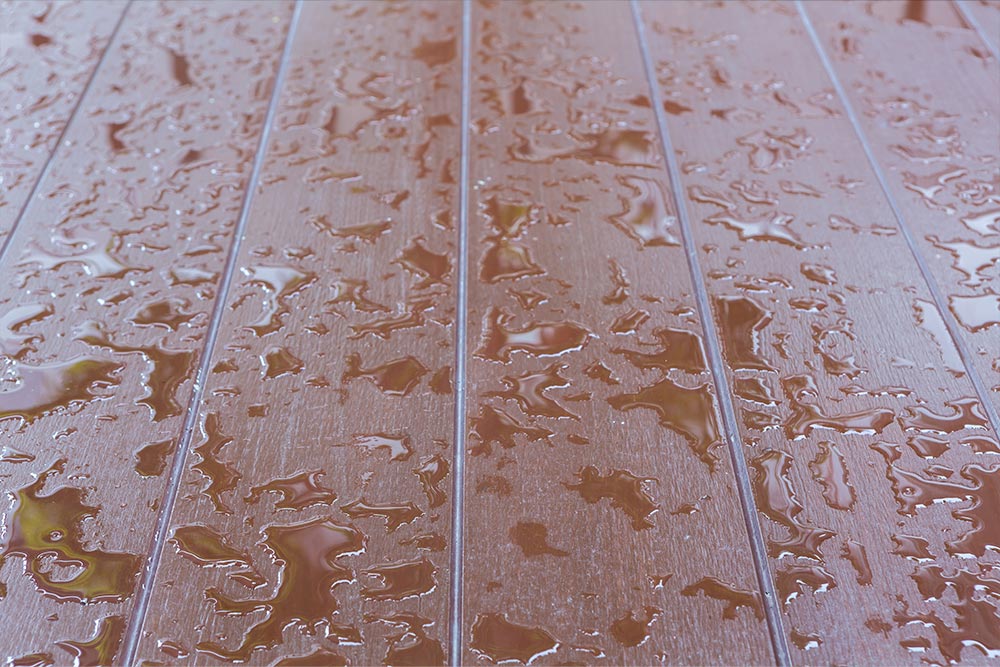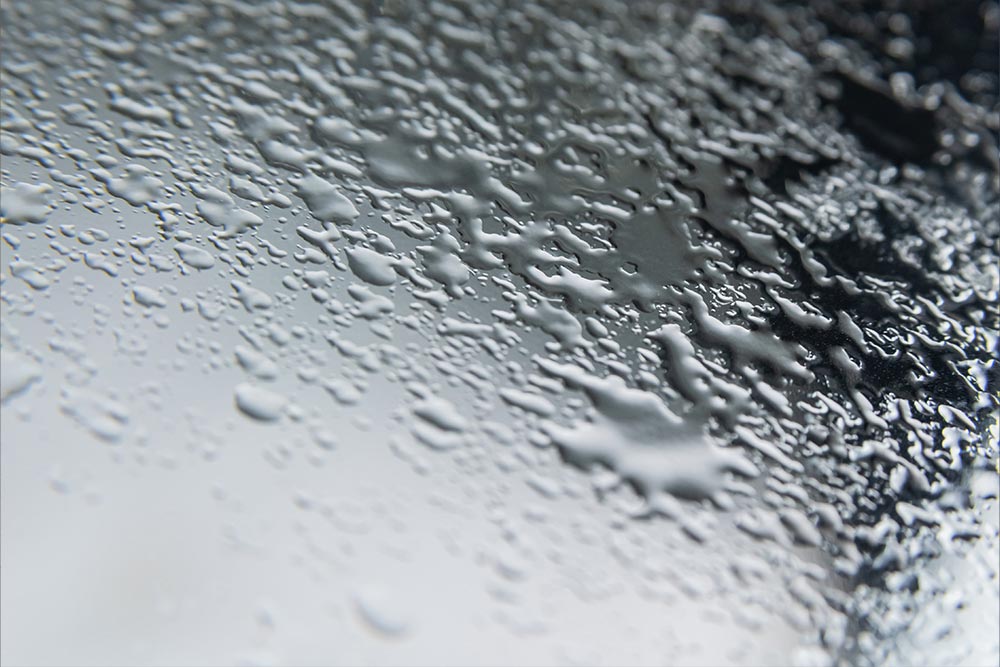UAE has an arid climate with little rain. The country does not experience rainfall very frequently. However, when it does, it is a moment of celebration for all.
Climate change around the world has caused significant rainfalls in Dubai. That’s where it has become important to rainproof your home in Dubai to avoid any damage from water.
Considering the situation, this blog will serve as your comprehensive guide to effectively rainproofing your home in the Emirates.

What Time of Year Does the UAE See the Most Rainfall?
UAE experiences the most rainfall during winter, specifically from December to March. This period contrasts sharply with the long, hot, and dry summers that the country is known for.
UAE’s rainfall is infrequent and short-lived, with 140 – 200 mm of average annual rainfall.
However, recent weather patterns suggest climate change can increase rainfall. This observation is made in light of the sudden devastating flooding experienced during April 2024.
Tips to Rainproof Your Home
The storms and floods of April 2024 caused havoc not only in the UAE but the entire surrounding region. The weather pattern has now become unpredictable, more so due to the effect of global warming. This makes rainproofing a high priority for everyone.
Here are some easy tips on how to waterproof your house and create a rain-proof home, keeping you safe and dry all year long.

Insulate Wiring
UAE’s heat and humidity can damage electrical wiring, making it more susceptible to water damage during heavy rain.
All residents are advised to conduct a thorough inspection of their exposed wiring, particularly near balconies, patios, and external walls. Look for any signs of fraying, cracking, or loose connections.
If proper maintenance is ignored, the water can actually penetrate through the walls, making its way to the circuitry. As electricity travels through wet surfaces, the connections with trapped water can stay wet and dangerous for weeks after the rain.
So, remember to pay special attention to electrical maintenance to prevent any fatal accidents during or after the rain.
Inspect Water Tank
Most UAE homes will have extra water storage arrangements, and these additional tanks need maintenance. Here are a few simple ways to confirm that your water supply remains safe for use:
- Ensure your water tank’s lid seals properly to prevent rainwater contamination.
- Check the tank for cracks or leaks that might allow rainwater to seep into the drinking water supply.
- Schedule a professional cleaning of your water tank to remove any accumulated debris or sediment that could harbour bacteria.

Re-seal Windows and Doors
Over time, the harsh desert climate can cause the sealant around windows and doors to crack and wear out. These worn-down borders will become the prime points for rainwater to enter your home.
Take time out to closely inspect the caulking around your windows and doors for signs of deterioration. For other areas, pay close attention to places exposed to strong winds and driving rain.
If you find any signs, re-caulk all gaps and cracks using high-quality, waterproof sealant specifically designed for exterior use.
UAE residents are advised to look for overheat-resistant silicone sealant on their next visit to the hardware store. Even if the entry points are sealed, a quick-setting sealant is a good object to have lying around until you finally need it.
Check All Drainage Points
Perhaps the biggest cause of damage for the UAE during the recent flood was the lack of a storm drainage system.
Even if it is flooded outside, you can still prevent water from accumulating in your front yard. Start by unclogging the roof gutters and downspouts. Then, move on to doing mini-stress tests on all the drains around the property by quickly pouring a bucket of water.
You will easily spot any irregularities if the drain is struggling to clear the water out. The most straightforward fix would be using a drain cleaner from your local supermarket or hardware store.
For the future, consider installing a drain guard to prevent leaves and debris from clogging the system.
Protect Rugs & Carpets
Rugs and carpets are particularly vulnerable to water damage during heavy rains. Accordingly, you should consider rolling up and storing away valuable rugs or carpets in a safe location in case of rain.
Invest in washable rugs or mats for high-traffic areas, especially near entryways. Immediately blot up any spills or water tracked in from outside to prevent permanent stains and potential mould growth.
Seal Wall Cracks
Even small cracks in your walls can become entry points for water during heavy rain.
Conduct a visual inspection of your interior and exterior walls for any cracks, paying close attention to areas around windows, doors, and rooflines.
Use a high-quality patching compound designed for exterior walls to seal any identified cracks.
For larger cracks or those showing signs of water damage, consult a professional for proper repair, as there are different companies which provide home maintenance services in Dubai and Abu Dhabi.
Home Insurance
Home insurance is not mandated by the government, except if the landlord is renting out a mortgaged property. It is, however, recommended to protect your homes, especially during the rainy season.
There are many options for home insurance; some cover the property’s exterior, while some include the interior too.
Even if you are renting a property, it’s still a good idea to have home insurance that protects your belongings in case of a natural disaster.
But there is so much more to consider before getting home insurance in UAE, so be sure to go through the process in advance.
If you already have home insurance, you should check your insurance policy to make sure it adequately covers water damage caused by rain. If necessary, you can consider upgrading the insurance to include rain-related risks and other unforeseen events.
Call Professionals
For complex tasks or situations requiring expertise, don’t hesitate to seek professional help.
Hire licensed contractors or waterproofing specialists to address significant leaks, cracks, or drainage issues.
A qualified electrician can inspect your electrical system and bring it up to code, minimising electrical hazards during heavy rain.But for more universal coverage, choose and hire the best home maintenance services in Dubai. Some of the companies even provide complete packages for waterproofing of homes.
FAQs
– Small cracks (less than 3mm) can often be addressed with high-quality exterior-grade silicone caulk.
– Larger cracks (up to 1cm) or holes can be fixed using a good-quality exterior patching compound.
There are some cost-effective strategies to keep the rooms in your home dry; check them below.
– Patch minor wall cracks with exterior patching compound to stop leaks before they start.
– Clean gutters and downspouts to prevent water pooling near your foundation.
– Regularly seal windows and doors with exterior-grade silicone caulk.
– Work on prevention rather than repairs. Once water damage is introduced, repairing a deep-rooted problem is considerably more costly.
Yes, you can waterproof your house from the inside, although it’s often considered a secondary solution compared to exterior waterproofing.
Rainproofing has a number of benefits. When you rainproof your home, it increases its lifespan by protecting it from water damage. It protects the valuable assets and appliances inside and saves you from getting costly repairs done. For the landlords, it increases property value, putting them in a better position to negotiate rental prices with the tenants.